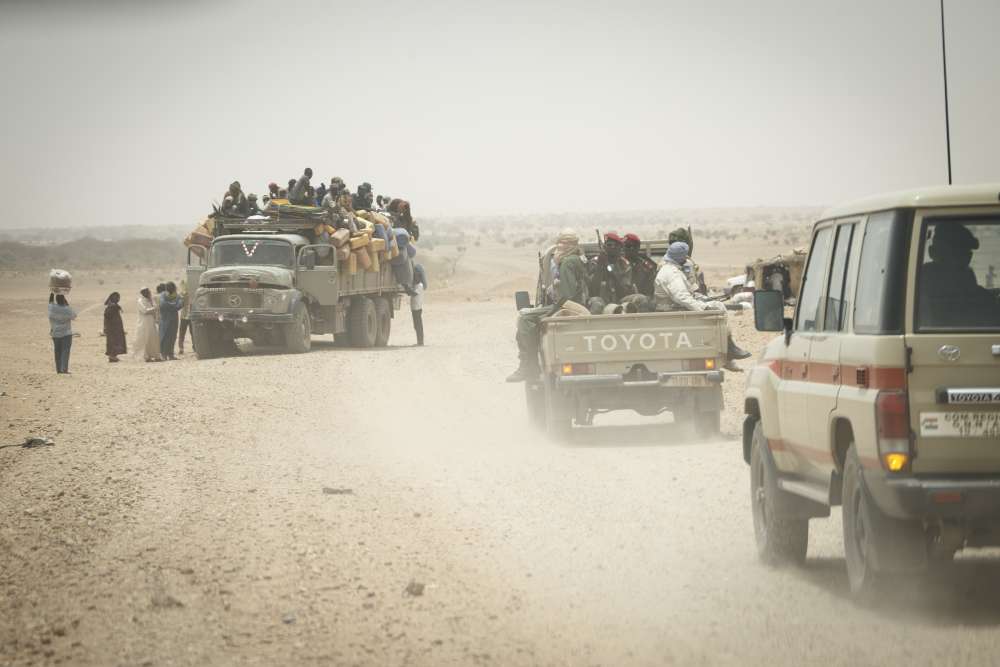By Alexander Bediako
At a recent security conference in Accra, Dr. Afua Boatemaa Yakohene, a respected scholar from the Legon Centre for International Affairs and Diplomacy (LECIAD), made a striking assertion: that Africa’s security is inseparable from Europe’s. Framed under the theme “Security is Borderless,” the argument draws on historical ties, economic entanglements, and global events to suggest that the two continents share a common security fate.
It is a well-intentioned position, and the case for strategic cooperation is indeed valid. But to declare Africa’s security inseparable from Europe’s is both inaccurate and problematic. It risks reinforcing dependency, diminishing African agency, and obscuring the unique security priorities that African states face today.
The danger of overstating interdependence
There is no denying that in a globalised world, security threats do not respect borders. Conflicts, economic shocks, migration, and pandemics spill across regions. However, acknowledging global interconnectedness is not the same as arguing inseparability. The vast majority of Africa’s security challenges, be it political instability, youth unemployment, ethnic tensions, weak governance, and intra-state violence are homegrown. They demand solutions rooted in local realities and regional contexts, not external blueprints shaped by distant priorities.
To conflate interdependence with inseparability is to suggest that Africa cannot secure itself without Europe, an implication that echoes colonial-era paternalism rather than modern sovereignty.
Historical ties: flawed justification
Dr. Yakohene cites Africa’s forced involvement in the World Wars as evidence of longstanding ties between the continents. But the historical conscription of African troops into European wars is hardly a precedent for meaningful partnership. If anything, it serves as a cautionary tale of exploitation under the guise of shared interests. History should inform cooperation, not justify subordination. True partnership requires equality and mutual respect, not the recycling of imbalanced power dynamics.
Global shocks expose vulnerability, not partnership
It’s true that Africa felt the ripple effects of the Russia–Ukraine war, especially in food and fertilizer shortages. But the lesson here is not that Africa and Europe are security twins. Rather, it exposes Africa’s structural vulnerabilities, import dependence, weak supply chains, and insufficient agricultural resilience. These are domestic development issues, not evidence of inseparable security frameworks. They call for inward investment, regional integration, and sustainable policy and not an overreliance on European stability.
European interventions: Helping or hindering?
Dr. Yakohene lauds initiatives like the EUCAP Sahel mission and the EUTM in Mali. But these efforts have not translated into enduring peace. In some cases, foreign presence has stoked resentment and inadvertently strengthened extremist narratives. In Mali, Burkina Faso, and Niger, the presence of European forces has neither deterred coups nor stemmed the rise of militant groups. Instead, these countries are questioning the efficacy and motives of foreign partners, a growing sentiment across the region. If we are to secure Africa, the solution must begin within: by building capable state institutions, empowering regional bodies like ECOWAS and the AU, and investing in preventative, not reactive, security measures.
Africa’s own security architecture is emerging
Africa is not a passive actor in its own story. The African Union’s peace and security framework, the African Standby Force, and ECOWAS’s interventions against unconstitutional changes in government reflect a growing continental will to manage internal crises. These mechanisms show that Africa is capable of crafting its own security architecture, and must be allowed to lead its efforts, not simply be supported or supervised by external powers.
Different Continents, Different Priorities
Let’s be honest: Africa and Europe face different security priorities.
• Africa deals with food insecurity, internal displacement, and insurgencies rooted in local grievances.
• Europe is focused on migration control, terrorism spillovers, and safeguarding external borders.
These are not mirror images. They may intersect, but they are not inseparable.
A call for strategic, not dependent, partnership
There is a clear role for European engagement, but it must be strategic, issue-specific, and led by African priorities. Diplomatic support, capacity building, technical assistance, yes. But it must stop short of prescribing African security direction. Dr. Yakohene rightly warns that national commitment is essential. But national commitment flourishes not in the shadow of foreign frameworks, but in the sunlight of sovereign, African-led solutions.
Conclusion: Cooperation, not conflation
Let us work with Europe, but not define ourselves in relation to Europe. Let us acknowledge interdependence, but reject inseparability. Africa’s security must be determined by Africans, shaped by our priorities, and driven by our institutions. Anything less risks trading one form of insecurity for another, the insecurity of dependency.


